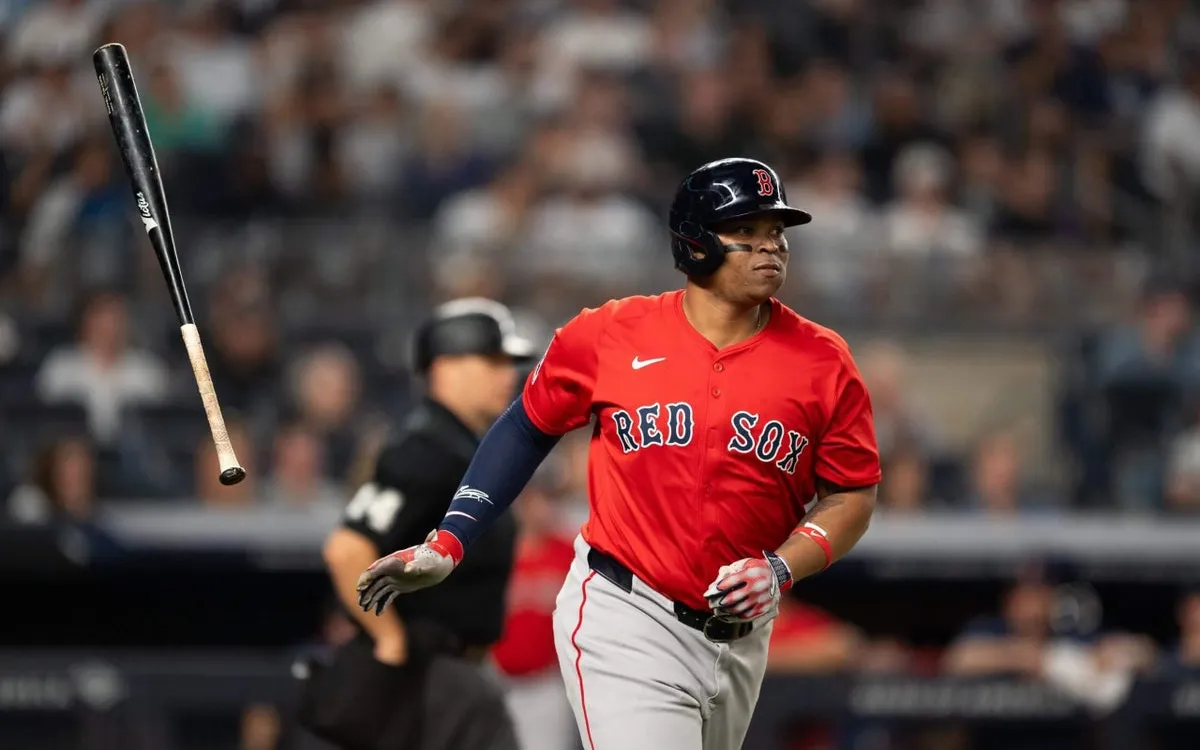
The Boston Red Sox have made headlines with their decision to trade star player Rafael Devers, raising the crucial question: Are the Sox a better team without him? As we look ahead to 2025, it's challenging to envision a scenario where the answer is affirmative. While there may be potential benefits in the long run, much hinges on the actions of chief baseball officer Craig Breslow. He must effectively utilize the approximately $255 million in savings from Devers' contract over the next eight-plus seasons.
Breslow's track record thus far, especially following a questionable return for Devers from the San Francisco Giants, leaves many fans skeptical. The timing of this trade is perplexing, especially after the Red Sox achieved a sweep over their arch-rivals, the New York Yankees, marking their fifth consecutive victory. Why not wait until the offseason to make such a significant move? If they had held off, they could have explored a wider market for Devers while also using him as leverage in negotiations regarding third baseman Alex Bregman, who has the option to opt-out of his contract.
The Giants took on the remaining years of Devers’ hefty 10-year, $313.5 million contract, which is only in its second year. In exchange, they sent four players to the Red Sox: pitchers Jordan Hicks and Kyle Harrison, outfield prospect James Tibbs III, and pitching prospect Jose Bello. While Devers’ contract may not age well, he is just 28 years old. Replacing one of the top 10 to 15 hitters in the league is a daunting task for the Sox, regardless of how many prospects they elevate to the majors.
Critics may label Devers as selfish for his reluctance to transition to first base, yet the organization shares some blame for the deterioration of their relationship. After asking Devers to become a designated hitter, he initially resisted but ultimately excelled in the role. When the organization later requested he play first base due to an injury to Triston Casas, it created tension. This mid-season request was unrealistic, especially considering Devers' defensive limitations.
Red Sox owner John Henry even traveled to meet with Devers in Kansas City, but their discussions were unfruitful. Devers expressed his uncertainty regarding Breslow's intentions, which only fueled the perception of discord. By trading Devers, the Sox removed a player who was batting .272 with 15 home runs and an impressive .905 OPS, despite a rough start to the season.
Now, the Red Sox face the challenge of compensating for Devers' absence in their lineup. His departure also reduces the veteran presence for emerging talents like Kristian Campbell, Marcelo Mayer, and Roman Anthony. The looming question remains: can they secure Bregman, who is expected to opt-out at season's end? The Sox could potentially reinvest the savings from Devers' contract into Bregman's new deal, though that strategy seems risky given the circumstances.
Breslow, who took over in October 2023 following the departure of Chaim Bloom, is under scrutiny for his decision-making. His earlier trades, including those for ace left-hander Garrett Crochet and catcher Carlos Narváez, have been met with mixed reviews. Additionally, his signings of free-agent pitchers like Lucas Giolito and Walker Buehler will take time to assess. The clock is ticking towards the 2025 trade deadline, and the Sox need to solidify their rotation, which currently ranks 22nd in ERA.
As the Red Sox move forward without Devers, the clubhouse dynamics may shift. While some players reportedly found Devers' quiet demeanor unremarkable, the decision to trade him mid-season raises questions about the impact on team morale. Will this move ultimately benefit the Red Sox, or could it lead to a situation where they cut off their nose to spite their face? Only time will tell as the organization navigates this pivotal moment in their history.